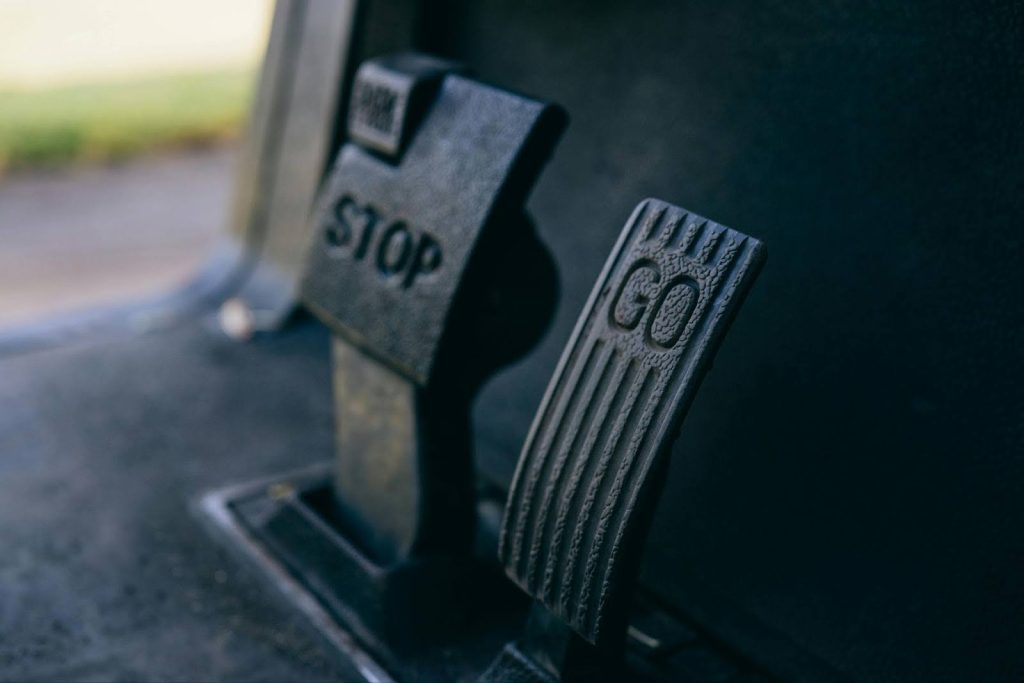
Your vehicle’s transmission is a bit like the unsung hero of your car, it quietly does its job, helping you switch gears and move smoothly from Point A to Point B. But when something starts to feel off, like strange noises or sluggish shifts, it could be your transmission calling out for help. And trust us, the sooner you address it, the less painful (and expensive) it’ll be.
Whether you’re new to car ownership or just want to get a handle on how transmission systems work, this guide will walk you through the basics. We’ll talk about what your transmission does, common signs of trouble, and how expert transmission services can keep your car in top shape.
What Is a Transmission, Anyway?
The transmission is responsible for transferring power from your engine to the wheels, helping your vehicle change speeds and operate efficiently. There are two main types:
- Automatic transmissions, which shift gears on their own
- Manual transmissions, which require you to do the gear shifting yourself (yes, like in the movies)
Inside, there’s a lot going on – gears, clutches, torque converters, and they all need to work in perfect harmony. If one part fails, the whole system can get thrown off.

Common Signs of Transmission Problems
Recognizing transmission issues early can save you from major headaches. Here are some telltale signs something might be up:
1. Slipping Gears
If your car unexpectedly shifts gears or struggles to stay in gear, that’s a classic red flag. It feels like your vehicle has a mind of its own and not in a good way.
2. Strange Noises:
Clunking, whining, or buzzing sounds when you accelerate or shift gears can point to trouble inside the transmission. If your car starts sounding like a spaceship, it’s time to schedule a transmission check.
3. Delayed or Rough Shifting
Does your car hesitate when shifting, or jolt suddenly between gears? That’s a sign the transmission isn’t responding the way it should.
4. Leaking Fluid
Transmission fluid is usually bright red and smells sweet or slightly burnt. If you spot a puddle under your car, don’t ignore it low fluid levels can lead to serious damage.
5. Warning Lights
Your dashboard is like your car’s way of texting you. If the check engine light comes on, especially combined with any of the symptoms above, don’t wait and get it checked out.

What Causes Transmission Problems?
Transmission issues can stem from a variety of causes, but these are some of the most common:
- Low or dirty transmission fluid: Fluid lubricates and cools the system. Without it, parts overheat and wear down.
- Worn-out clutches or gears: These parts degrade over time, especially in manual transmissions.
- Faulty solenoids: These control fluid flow and can fail due to electrical issues.
- Heavy towing or poor driving habits: Constant strain on the vehicle can wear out the transmission faster.
- Lack of regular maintenance: Skipping scheduled transmission services shortens your transmission’s lifespan.
Why Transmission Services Matter
Think of transmission services as a regular health checkup for your car. Just like changing your engine oil, your transmission needs periodic care to keep it running smoothly. Professional transmission services include:
- Fluid changes or flushes
- Filter replacements
- Transmission inspections
- Diagnosing and repairing leaks
- Computer diagnostics to catch internal issues early
When Should You Get a Transmission Check?
If you notice any of the signs we mentioned above, it’s time to book an appointment. But even if everything seems fine, here are some general guidelines:
- Every 30,000 to 60,000 miles: Schedule a transmission fluid change.
- After towing heavy loads: Get your transmission inspected.
- Before long road trips: Make sure your transmission is ready to go the distance.

Transmission Repair vs. Replacement
One of the biggest questions car owners face is: can it be repaired, or do I need a whole new transmission?
- Repairs involve fixing specific components, this is usually cheaper and faster.
- Rebuilds replace several internal parts while keeping the transmission case.
- Replacements are a last resort, often necessary when damage is severe or widespread.
The best way to know? Have a trusted mechanic inspect your vehicle and walk you through the options.
Pro Tips to Prevent Transmission Trouble
Want to avoid expensive transmission repair down the line? Here’s what you can do:
- Check your transmission fluid regularly
- Don’t ride the brakes or over-rev the engine
- Warm up your car before driving in cold weather
- Avoid towing loads beyond your vehicle’s limits
- Stick to a regular maintenance schedule
For more tips, visit this helpful guide from the Car Care Council.
Why Choose HeVtech for Transmission Repair?
When it comes to transmission repair, you want a team you can trust and that’s exactly what you’ll find at HeVtech Mechanic & Tire Service. As a community-focused, AMVIC-certified auto shop rooted in Picture Butte, Alberta, HeVtech blends professionalism with a personal touch. We’re not just fixing vehicles, we’re helping our neighbors get back on the road safely and confidently.
Our certified technicians specialize in complete transmission repair and maintenance for all makes and models, from everyday cars to heavy-duty vehicles. With the latest diagnostic tools and a commitment to transparency, we explain everything in simple terms so you’re never left in the dark.
At HeVtech, you’re not just a customer, you’re part of our community. No upselling. No jargon. Just honest, expert service from a team that genuinely cares about your vehicle’s well-being.
Think your transmission needs a check-up? Don’t wait until it’s too late. Book your appointment today and experience the difference of community-first car care.



